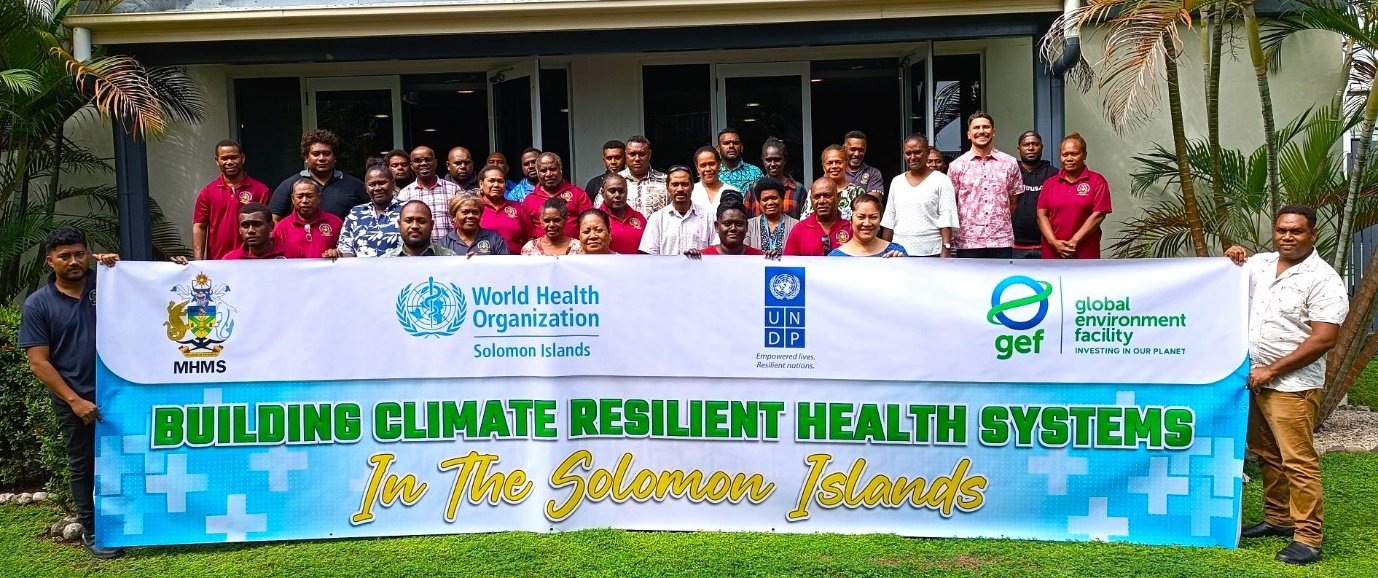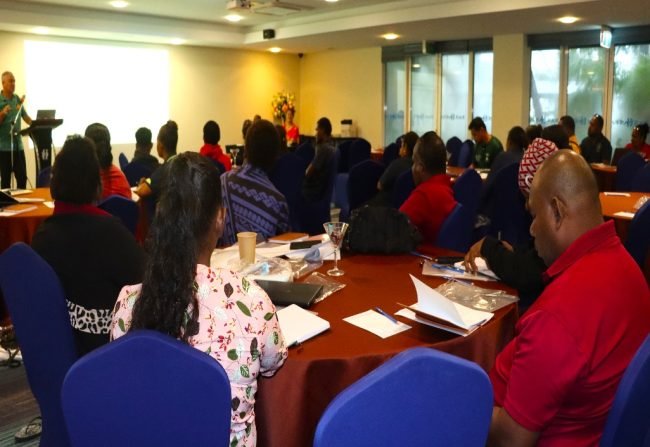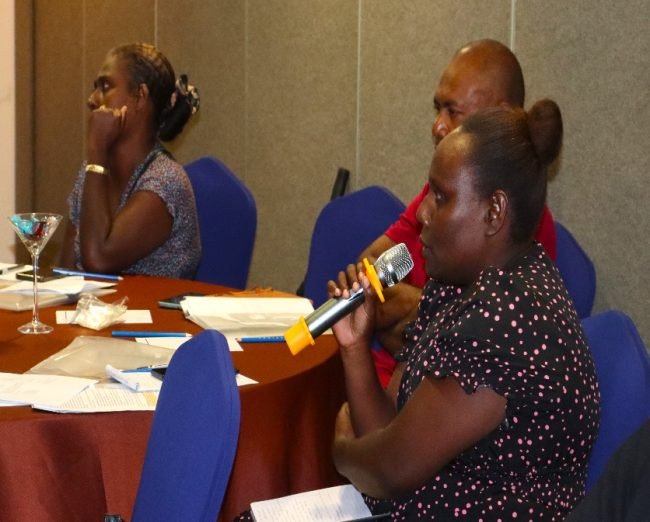
Health National Adaptation Plan to Build Resilience of Health Systems to the Climate Crisis training completes
The Ministry of Health and Medical Services (MHMS) National and Provincial Environmental Health officers, planning officers and stakeholders have successfully completed a three-day workshop on further developing the Health National Adaptation Plan (H-NAP) to build the resilience of health systems to the climate crisis.
Speaking at the official opening of the workshop on behalf of Deputy Secretary Health Improvement Dr Nemia Bainivalu, Mrs. Jennimer Ngoli Chief Health Inspector of Human Resource and Training said the workshop is an avenue where officers can engage, foster network, and collaborate to address impacts of the climate crisis and its intersection with public health.
“It is without a doubt that climate change and its adverse impacts is one of the critical issues of this century and it impacts all sectors and services including health,”Mrs. Ngoli said.
She explained major health risks related to climate change include loss of life and injury from extreme climate events, communicable and vector-borne diseases but also non-communicable diseases and mental health-related issues. To manage these risks, intersectoral collaboration is required.
“In Solomon Islands, increasing exposure to climate-related diseases is one of the key factors that put an immediate strain on people’s livelihoods and restrict their abilities to cope with the more frequent and intense external stresses caused by extreme climate events.”

Participants at the workshop
“Climate change is a cross-cutting issue that necessitates cross-sectoral collaboration. Our three-day workshop exemplifies the importance of strengthening partnerships and fostering institutional relationships to effectively address the health impacts of the climate crisis, particularly on our most vulnerable populations.”
“The World Health Organisation (WHO), works collaboratively with the Environmental Health Control Management Unit (EHCM) in MHMS, developing the H-NAP through phased consultations gradually involving the officers from Environmental Health Divisions, Ministry of Health and Medical Services (MHMS) Headquarter, Honiara City Council and Guadalcanal Province.”
“Early outcomes of the consultations validate the approach of working together, and we are grateful for the financial support under the GEF Project. The development of the Health National Adaptation Plan (H-NAP), in an interactive manner, and with guidance from our WHO colleagues and partners in health is a key priority of the ministry for 2024.”
“Convening this workshop serves as a catalyst to implement major activities under the Global Environment Facility, UNDP project. By leveraging our collective understanding of the climate crisis and building-resilient health systems in the Solomon Islands, we are setting the foundation for sustainable and impactful change, ” She added.

A participant speaking during the workshop
Meanwhile speaking on behalf of the WHO Country Representative, Dr Howard Sobel, Mr Georgios Theocharopoulos of the Health Emergencies Program stated “WHO works in partnership with MHMS on the Global Environment Facility (GEF) funded project, (with oversight provided by UNDP), to develop health system resilience to the impacts of climate crisis in the Solomon Islands.
“The goal of the project is to enhance the capacity of national and local health systems and institutions, personnel, and local communities to manage health risks induced by climate variability and change,” Mr. Theocharopoulos said.
He further added that the purpose of the H-NAP is to agree on taking measures that allow health systems to adapt to the climate crisis and to manage risks that may affect people’s health and well-being.
“Importantly, the H-NAP will be aligned to the key national plans and policies including the Solomon Islands National Climate Change Policy 2023 – 2032 and global mechanisms referencing WHO guidance,” Mr. Theocharopoulos said.
Ends///
MHMS
